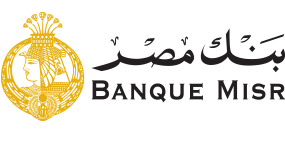Murabaha product for financing microenterprises (from EGP 30k to EGP 400k)
Murabaha product for financing microenterprises (from EGP 30k to EGP 400k)
The size of microfinance companies according to the definition of the Central Bank: -
- Existing Companies:
- Sales up to less than one million Egyptian pounds annually. Companies that exist for less than a year:
- aid-up capital less than EGP 50k
Product Idea:
A urabaha Futures Installment Program to finance owners of micro-enterprises engaged in commercial, industrial, or service activities with annual revenues of up to one million pounds. The financing is carried out using the Murabaha system (Murabaha for the person ordering the purchase or Murabaha by proxy). The customer signs an agreement to finance the purchae of goods. The bank thenexecutes the Murabaha process for the customer with an agreed profit margin. The total cost (value of the purchased goods + the bank's profit margin) is then distributed over a set of installments agreed upon between the bank and the customer.
General Conditions for Murabaha Grants: -
- The customer must be at least 21 years old when they sign the Murabaha agreement, and they must be no older than 65 years old when the Murabaha period ends.
- The guarantor should not be a minor.
- Both the customer and the guarantor must be of Egyptian nationality.
- The customer or guarantor must be fluent in reading and writing (at least one of them).
- The business must have been in place for at least one year.
- The customer's business must be within the city, village, or center where the Islamic transactions branch is located.
Activities available for funding: -
All customers who practice (commercial, industrial, or service) activities for the purpose of financing working capital. The activity should not be one of those prohibited by Sharia or product policies, including:
- the manufacture and trade in weapons and ammunition, gambling activities, nightclubs, and liquor manufacturing and trading, as well as
- Media activities, law firms, accounting, legal consultancy, and brokers.
- Other eligible activities include production and (agricultural/animal/poultry/fish) processing activities.
- Transport and tour offices.
- Means of transportation (whether registered under the activity's name or the customer's name).
Examples of activities available for funding include (but are not limited to): -
- Groceries.
- Food & Beverage Trading.
- Timber and furniture trading.
- Clothing and textiles Manufacture and trade.
- Leather and footwear industry and trade.
- Paper industry and trade, printing, and packaging.
- Glass trading.
- Paints Trading.
- Aluminum Trading.
- Wire and cable trading and electric lighting equipment manufacture.
- Manufacture and trade of soap and disinfectants.
- Electrical & Home Appliances Trading.
- Plastics industry and trade.
|
Description |
Product I |
Product II |
|
Murabaha purchase value |
From EGP 30,000 to EGP 75,000 |
More than 75,000 to EGP 400000 |
|
Murabaha tranches and gradation in their value |
Tranche I: From EGP 30,000 to EGP 50,000
Tranche II: More than 50,000 to EGP 75000
|
Tranche I: Greater than EGP75000 to EGP150000 Tranche II: More than 150000 to EGP 250000 Tranche II: More than 250000 to EGP 400000
|
|
Murabaha Term: |
From 6 months to 24 months. |
From 12 months to 36 months. |
Basic documents required: -
- Application for microenterprise Murabaha
- A true copy of a valid national ID (for both the customer and the guarantor)
- A true copy of the presence deed (lease contract with date proof or ownership contract)
- A recent electricity receipt at the activity headquarters.
- Additional documents required for the second product only:
- A recent extract from the commercial register.
- A copy of the tax card.
- A copy of the last receipt of social insurance payment.
Additional features: -
- In accordance with the provisions of Islamic Sharia and under the supervision of a Sharia Board.
- The possibility of financing street vendors.
- The possibility of financing projects managed from homes.
- The possibility of financing projects managed by women.
The possibility of financing projects managed through kiosks owned by the City Council.





